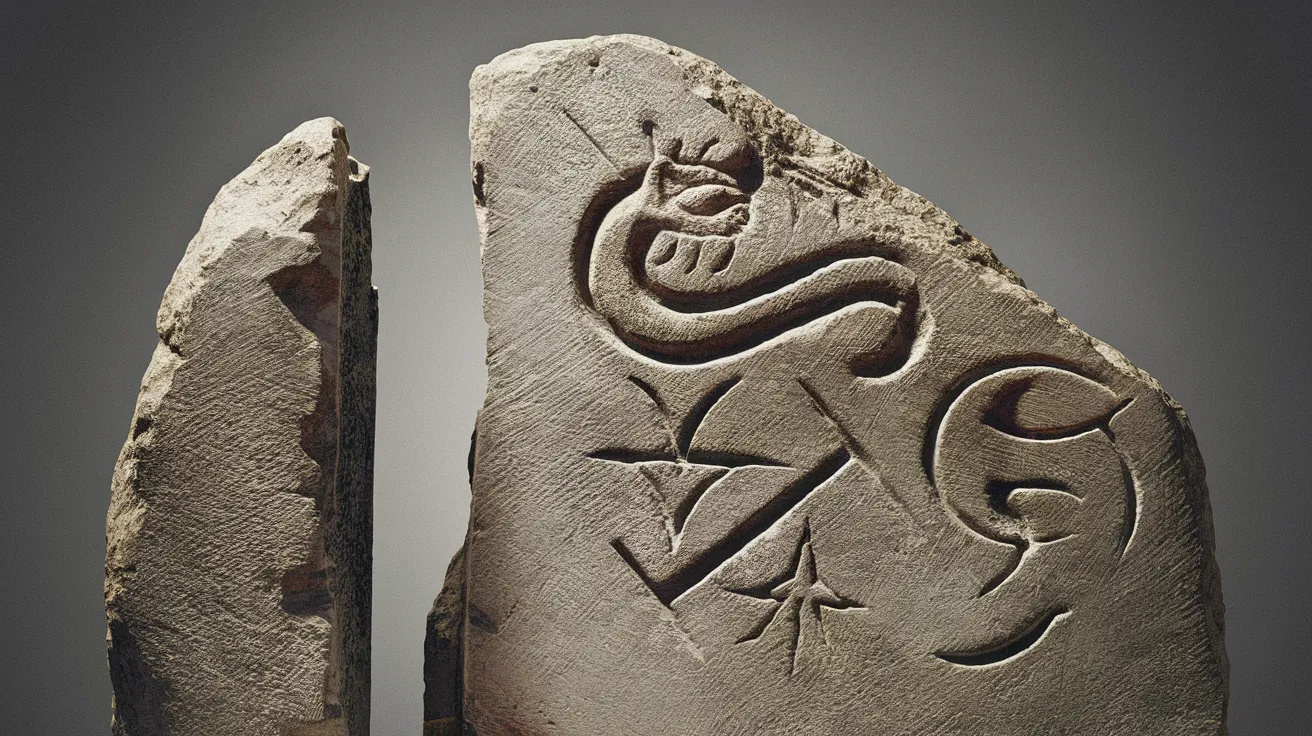Quick Navigation
- Origins: Norse Roots, Scots Branches
- Key Characteristics: Sound and Structure
- Common Orkney Words and Phrases
- Tips for Understanding Locals
- Preserving Orkney's Voice
- Frequently Asked Questions
- Is Orkney dialect the same as Shetland dialect?
- Is Norn still spoken in Orkney?
- Will I be able to understand people in Orkney?
- Where can I learn more Orkney words?
Listen closely in Orkney, and you'll hear more than just the cry of seabirds and the whisper of the wind; you'll hear the unique cadence and vocabulary of the Orkney dialect. A fascinating blend of Old Norse and Lowland Scots, the way Orcadians speak is a living link to the islands' rich history and distinct cultural identity. While easily intelligible to most English speakers, understanding a few key features and phrases can greatly enhance your interactions and appreciation of local life. This guide delves into the origins, characteristics, and essential words of the Orkney dialect.
Origins: Norse Roots, Scots Branches
The foundation of the Orkney dialect lies in Norn, the North Germanic language derived from Old Norse, brought by Viking settlers around the 9th century. Norn was the primary language of Orkney for approximately 700 years, gradually diverging from its Scandinavian cousins. Its influence remains strong in place names (almost entirely Norse in origin), vocabulary related to farming, fishing, and weather, and even some grammatical structures.
Following Orkney's transfer to Scottish rule in 1468, Lowland Scots became the language of administration and gradually overlaid Norn. Norn likely ceased to be a commonly spoken language by the 18th or early 19th century, but it didn't disappear entirely. Instead, it merged with incoming Scots, creating the unique dialect heard today – a variety of Insular Scots heavily influenced by its Norse substrate.
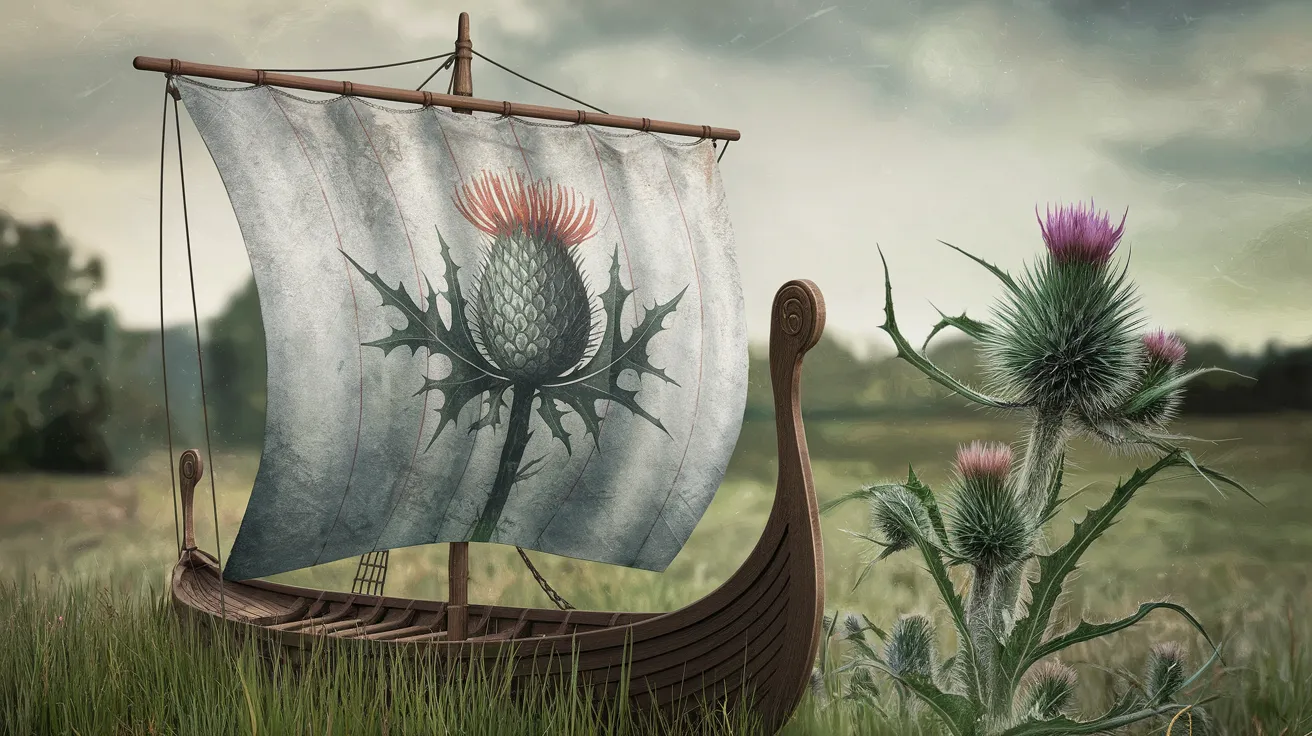
Key Characteristics: Sound and Structure
What makes the Orkney dialect distinctive?
- Pronunciation:
- A characteristic 'ch' sound often replaces 'j' or soft 'g' (e.g., 'Cherman Cham' for 'German Jam').
- Vowel sounds can differ from Standard English, sometimes reflecting older Norse pronunciations (e.g., 'name' might sound closer to 'neem', 'table' to 'teeble').
- The 'th' sound is generally pronounced as in standard English, unlike in Shetland where it often becomes 'd' or 't'.
- North Ronaldsay has its own sub-dialect featuring further softening, like 'k' becoming 'ch' ('cheepin' for 'keeping').
- Intonation: Orkney speech often has a noticeable rising intonation or 'lilt' towards the end of sentences, sometimes compared to Welsh or Irish patterns, and distinct from the flatter pitch or Norse stress patterns found in Shetland dialect.
- Grammar:
- Use of 'to be' instead of 'to have' as an auxiliary verb in perfect tenses is common (e.g., "I'm finished my work" instead of "I have finished...").
- Use of 'thoo' or 'thee' for the singular 'you' still persists among some older speakers or in informal contexts, a direct link to Old Norse/Norn.
- Some minor differences in verb endings (e.g., past tense '-id' instead of '-it').
Common Orkney Words and Phrases
Sprinkling your conversation with a few local words (used appropriately!) can be appreciated, or at least help you understand common expressions:
- Peedie: Small (probably the most famous Orkney word). "Just a peedie drop more milk, please."
- Bairn: Child. "The bairns are playing outside."
- Ken: To know. "I ken him fine." / "Do ye ken the time?"
- Aye: Yes.
- Bonnie: Pretty, beautiful, fine. "It's a bonnie day."
- Greet: To cry or weep. "Stop greetin'!"
- Clipe: To tell tales, gossip / A tell-tale. "Don't be such a clipe."
- Stour: Dust, or spray from the sea. "There's a lot o' stour on the road." / "The sea stour was heavy today."
- Bruck: Rubbish, mess, nonsense. "Clear oot this bruck." / "Don't talk bruck."
- Fornent: Opposite, directly across from. "The shop is fornent the kirk (church)."
- Wir: Our. "That's wir boat."
- Muckle: Large, big. (Less common now than 'peedie' is for small).
- Haar: Sea fog or mist.
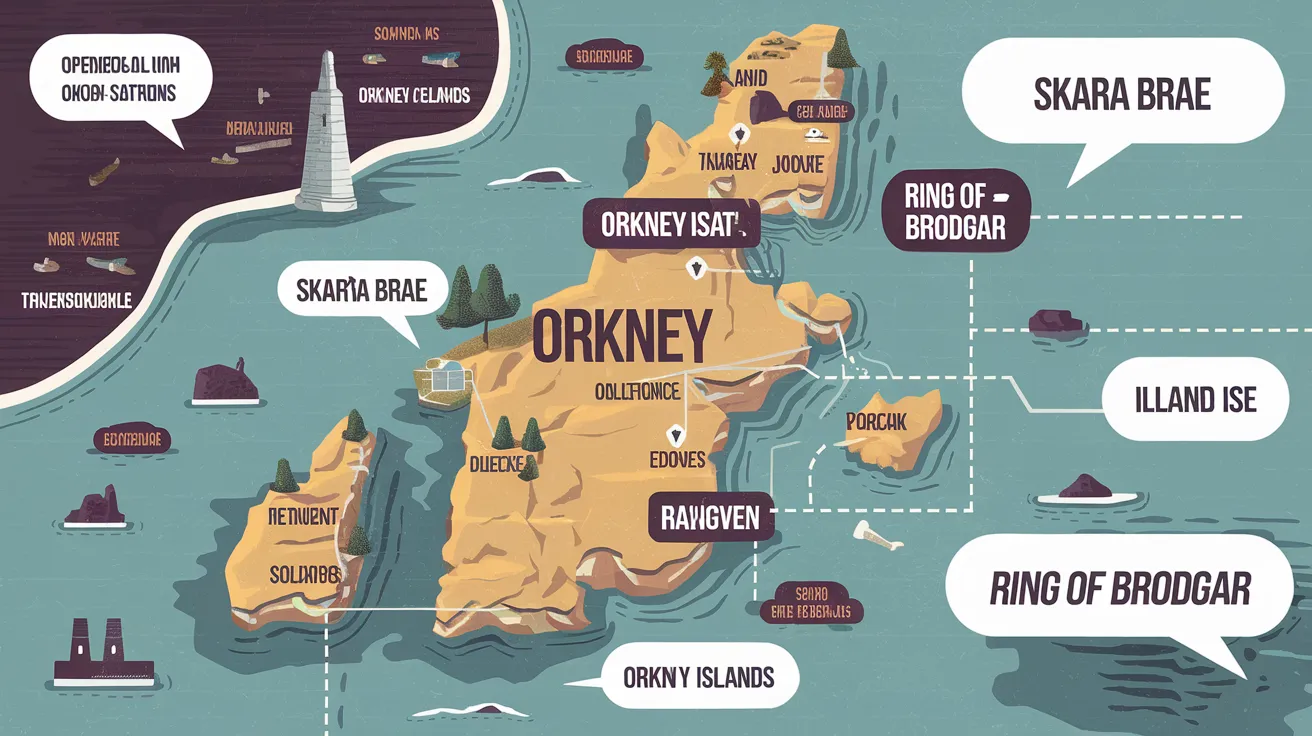
Tips for Understanding Locals
- Listen for the Lilt: Pay attention to the rising intonation – it can sometimes make statements sound like questions to unfamiliar ears.
- Context is Key: Like any dialect, meaning often comes from context.
- Don't Be Afraid to Ask: Orcadians are generally friendly and understanding. If you don't understand something, politely ask for clarification ("Sorry, could you say that again?").
- Embrace It: Enjoy the unique sound and vocabulary as part of the Orkney experience!
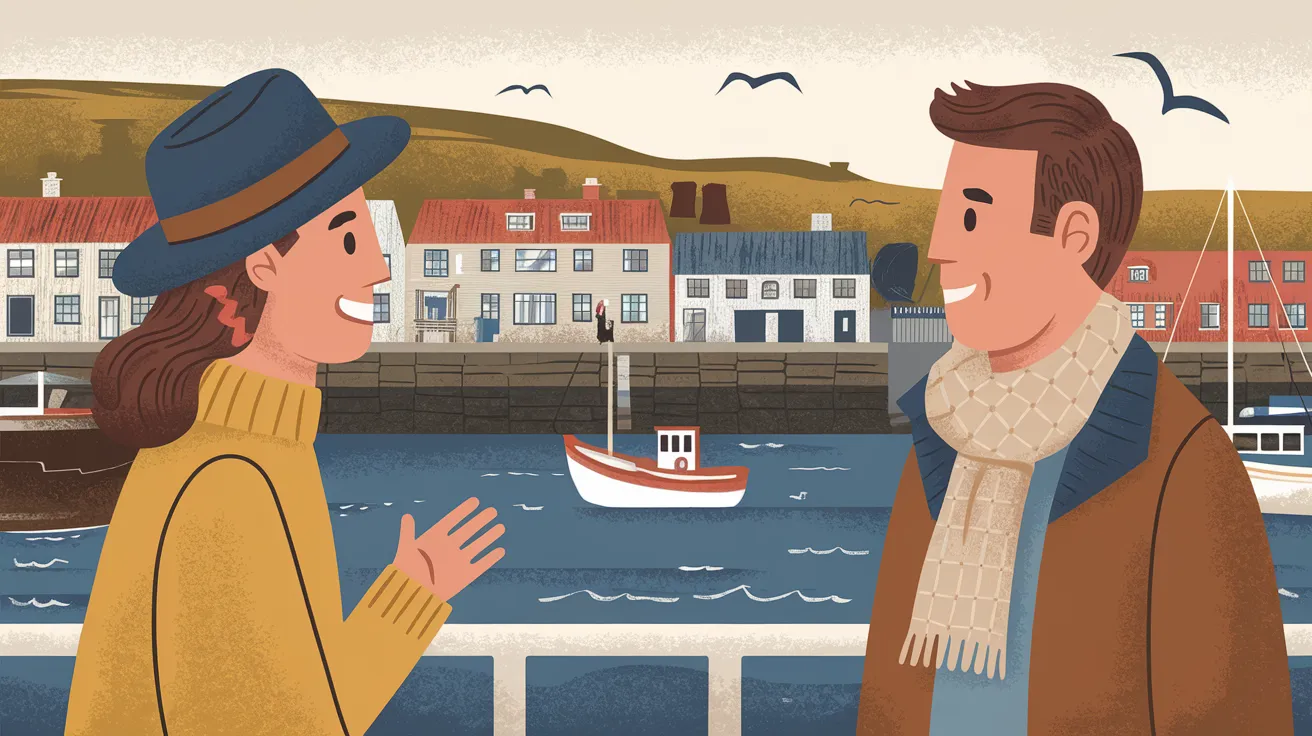
Preserving Orkney's Voice
Like many regional dialects, Orkney dialect faces pressures from media and mobility, but efforts exist to preserve and celebrate it:
- Recording & Documentation: From early collectors like Walter Traill Dennison to modern resources like the online Orkney Dictionary, efforts continue to record words and usage.
- Literature & Storytelling: Local writers often incorporate dialect into their work. Events like the Orkney Storytelling Festival help keep oral traditions alive.
- Academic Interest: Linguists study Orkney dialect's unique features and its relationship to Norn and Scots.
- Community Pride: There's a strong sense of local identity tied to the dialect, helping it endure in everyday conversation.
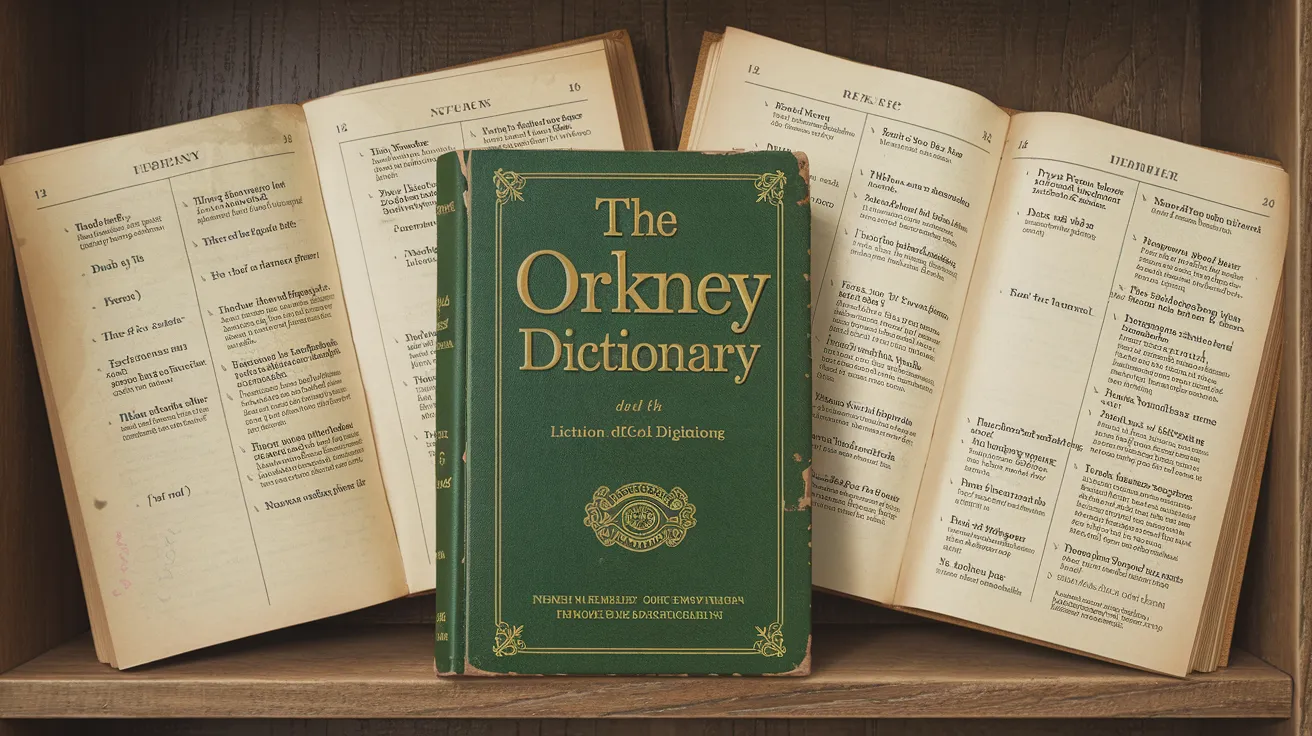
Hear some examples of Orkney dialect words:
Frequently Asked Questions
Is Orkney dialect the same as Shetland dialect?
No. While both are forms of Insular Scots with Norse influence, they have distinct differences in pronunciation, intonation, vocabulary, and grammar.
Is Norn still spoken in Orkney?
No, Norn as a distinct language died out probably in the 18th or early 19th century. The modern Orkney dialect is a variety of Scots, but it contains many words and features inherited from Norn.
Will I be able to understand people in Orkney?
Yes, generally. While the accent and some vocabulary are distinct, most Orcadians speak standard English readily, especially when interacting with visitors. You'll likely understand the vast majority of conversations.
Where can I learn more Orkney words?
Look for local dialect books in Orkney shops, explore the online Orkney Dictionary, or visit the Orkney Library & Archive.
The Orkney dialect is a fascinating reflection of the islands' history and culture. Listening to its unique sounds and learning a few 'peedie' words adds another layer to the rich experience of visiting Orkney. Find Orkney accommodation and immerse yourself in the local culture.


